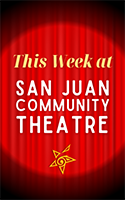Joe says: Save the sound? Canadian-US dialogue needs to improve…..
Posted March 17, 2009 at 11:30 pm by Ian Byington
Over on Orcas, Joe Gaydos is one of the people I listen to, when it comes to sorting out priorities related to saving our ecosystem… here are his thoughts on one way to make things better:
Increased US – Canadian cooperation is among other basic principles that need to be followed to save Puget Sound.
A new research paper, just published in the international journal EcoHealth, finds that a major principle for restoring ecosystems is lacking in efforts to restore the health of Puget Sound.
“Efforts to save Puget Sound must revolve around a working principle that ecosystems do not recognize political borders. To save Puget Sound, the U.S. and Canada must work together much more closely than is currently practiced,” said Joe Gaydos, the study’s lead author. Gaydos is Chief Scientist and Regional Director of the SeaDoc Society, a non-profit organization that funds science to improve the health of the Salish Sea. The Salish Sea is a name often used for the U.S./Canadian inland sea that includes Washington’s Puget Sound and British Columbia’s Georgia Strait.
“While there is some coordination between U.S. and Canadian initiatives to heal the Salish Sea, it is not nearly enough. The international political boundary is invisible to marine fish and wildlife, including species listed as threatened or endangered” Gaydos said. “Oceanographic processes, such as freshwater from rivers and streams, and currents exchange plankton, sediments, and nutrients throughout the entire ecosystem, not just Puget Sound.” Gaydos noted that Canada’s Fraser River is Puget Sound’s largest source of fresh water.
“Our salmon and our whales are your salmon and your whales,” added Jane Watson, Marine Ecologist at Vancouver Island University and one of the SeaDoc Society’s Science Advisors. “We cannot change the nature or boundaries of the ecosystem but with improved cooperation and bilateral commitment, we can jointly recover imperiled species and clean up the water.”
Millions of dollars have been spent on restoring places like the Chesapeake Bay and the Everglades, but the success has been limited and there is not a successful model to follow. In addition to calling for coordinated initiatives at the ecosystem level, the paper calls out nine other critical principles that need to be followed to design a healthy Puget Sound and Salish Sea. These include: accounting for connectivity in the ecosystem, better understanding the food web, avoiding habitat fragmentation, respecting the integrity of the system, taking actions that support resilience, appreciating the economic value of a healthy ecosystem, monitoring wildlife health, planning for extreme events and sharing our knowledge about the ecosystem with everyone in the region.
A copy of the manuscript is available at www.seadocsociety.org. The SeaDoc Society works to ensure the health of marine wildlife and their ecosystems through science and education. A program of the Wildlife Health Center at the University of California, Davis (UC Davis), the SeaDoc Society has a regional focus on improving the health of the Salish Sea.
You can support the San Juan Update by doing business with our loyal advertisers, and by making a one-time contribution or a recurring donation.
Categories: Around Here, Enviro Corner










No comments yet. Be the first!
By submitting a comment you grant the San Juan Update a perpetual license to reproduce your words and name/web site in attribution. Inappropriate, irrelevant and contentious comments may not be published at an admin's discretion. Your email is used for verification purposes only, it will never be shared.